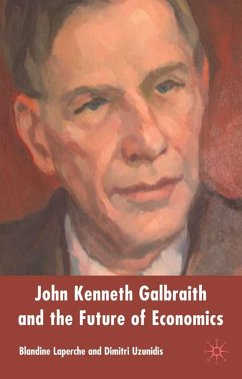
John Maynard Keynes and the Economy of Trust
The Relevance of the Keynesian Social Thought in a Global Society

PAYBACK Punkte
19 °P sammeln!
Why does trust collapse in times of crisis? And when, instead, does it become a driver of growth, generating value? Through a sociological interpretation of the thought of John Maynard Keynes, Padua introduces the innovative concepts of Economy of Trust and Nominal Economy within the context of the 2008 financial crisis.














